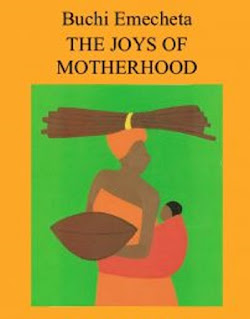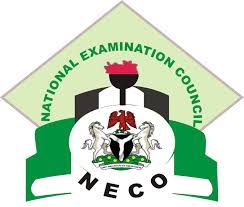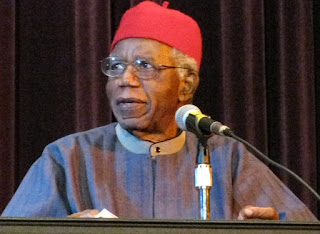The Joys of Motherhood themes are the issues discussed by Buchi Emecheta in the novel.
Through these issues, we might come to terms with our own reality and see for
ourselves why people act as they do.
more-->
From cultural beliefs to poverty, education, religion and marriage, Buchi Emecheta gives us a complete idea of what motherhood is to the African, from different perspectives: the old and new
views.
The
Joys of Motherhood Themes
Explained below are the different Joys of Motherhood themes that Buchi
Emecheta seems to pass across to us brilliantly in a way that will make us
understand ourselves and our world better.
1.
Theme of Cultural Belief
The novel, The Joys of Motherhood, revolves around Nnu Ego, a young woman so deeply
rooted in the custom and tradition of her people, she wouldn't stop reminding
everyone who cares to listen how great her father is. In fact, her life
throughout the story shows a woman who doesn't want to let go of her old life for
the new one. Even the fact that she now lives in Lagos where a woman also has
to work and supports the family does not really bother her. Another interesting
aspect of this is the belief in chi, a personal god responsible for the
people's fate. When Nnu Ego consults the dibia, a herbalist regarding her
infertility, she is told her chi is responsible. Little wonder then that after
losing her first male child, she goes haywire. Emecheta lets us into her thinking thus:
It would all soon be over, right
there under the deep water that ran below Carter Bridge. Then she would be able
to seek out and meet her chi, her personal god, and she would ask her why she
had punished her so. She knew her chi was a woman, not just because to her way
of thinking only a woman would be so thorough in punishing another. Apart from
that, had she not been told many times at home in Ibuza that her chi was an
slave woman who had been forced to die with her mistress when the latter was
being buried? So the slave woman was making sure that Nnu Ego's own life was a
catalogue of disasters. (p. 9)
This clearly expresses the belief in
reincarnation in the novel.
2.
Theme of Poverty
As one of the Joys of Motherhood themes,
Emecheta seems to drive home a point that life in a rural area is more
prosperous than in the city. Even Nnu Ego won't stop making reference
to this whenever Nnaife, her husband, can't live up to his expectations. Apart
from that, is it not ironical that a poor Nnaife who slaves for a white master
as a laundryman could take on more than one wife? Even more interesting is an
idea that sometimes poverty is self-inflicted. For instance, had Nnaife been
reasonable with spending the money he makes each time, life could have been a
little easier on them. And when we talk of poverty in the novel, we cannot but
make reference to the very touching scene of Oshia’s illness. The boy looks so
thin Nnu Ego fears he is going to die until Iyawo Itsekiri, her neighbour comes
to their rescue. Meanwhile, Nnu Ego had earlier believed the boy was suffering from fever,
but Iyawo Itsekiri’s diagnosis soon proves her wrong after giving her a plate of
porridge to feed him. It turns out the poor boy is actually suffering from malnutrition. Here’s
how Emecheta aptly puts it:
Iyawo
Itsekiri’s fears proved quite unfounded. Oshia did not wait to be invited. He
crawled from the mat on which he was lying, and at his efforts to reach the
bowl of porridge his mother wept – he was like a moving carcass. But he refused
her help, and reached the wooden tray just as Iyawo brought in the spoons. All
of them, with the exception of the baby who was peacefully sleeping on the bed,
pounced on the stew. Nnu Ego swore that she had never tasted anything so tasty. (p. 105)
3. Theme of Education
Of all the themes in the novel, this
appears the most emphatically established. The essence of getting an education is
so drummed into our ears as if it is the magic wand to instant success. Well, when
we consider that the story is set in a pre-independence Nigeria, we cannot
ignore the significant role of education, most especially one earned outside of
the country, in nation-building. So apart from being very proud of his son
Oshia for doing well in school and their unrealistic expectations from him when
he completes Standard Six, his going abroad on a scholarship for further
education makes Nnu Ego and Nnaife superheroes in spite of their
disappointment. But the question really is, could the Owulums have misprioritised
their reasons for sending their sons to school? Also, when after all the
sacrifices made to pave the way for the boys to be educated, all Nnaife could
ever get in return is Oshia’s rudeness, we are faced with yet another question about the freedom that comes with being educated. Even Nnu Ego only gets to enjoy the
dividend of her sons’ education posthumously through a fanciful burial. Could
this be a way to tell us to not think of education as an investment that needs
to instantly yield returns? Or to put in it another way, how much of education is
worth the sacrifice for it? Similarly, it is touching that Nnu Ego has to seek
Mama Abby’s help each time she needs to visit the post office or the army
barracks. With this, education really is light.
4. Theme of
Religion
In
Nigeria, nay Africa, religion is everything – it is hope, it is a community, it
is opportunities, it is also a lifestyle. In Buchi Emecheta’s The Joys of
Motherhood, it is all of these and more to different characters in the story. To
Nnu Ego religion is a belief system, it is custom and tradition that must be
adhered to. Despite her living in Lagos where people would rather bother
themselves on how to make ends meet Nnu Ego still believes her chi is
responsible for all her woes. For Nnaife however, even though he lives in the
city and has really not left everything tradition, he really has less time for church-going. Even being a Christian won’t stop him from inheriting his late brother’s
four wives though he knows his new religion doesn’t accept polygamy. How about
the dibia Nnu Ego runs to for help for protection of Oshia from anyone who
might want to harm him out of jealousy and for Nnaife against the ghost-playing-the-guitar
story which Adim later finds laughable? Obviously, to that dibia, religion puts
food on his table as sacrifices will have to be made with food items and some
money. To further establish the state of religion among many Nigerian city
dwellers, Emecheta's use of the story of Nnaife going to the church to offer a
bribe to one of the pastors who has promised to help him find a job is a
pointer to the fact that most people commit to a religion for the material
gains they derive from it. After all, people attend church or mosque activities
with the hope they might have the rare opportunity to network with the rich and
the influential in society. So as one of Buchi Emecheta’s The Joys of Motherhood themes, this is pointing
to the notion of religion by the African.
5.
Theme of Marriage
The
issue of marriage is archetypal in African Literature. You hardly read a truly
African novel without one. From Mariama
Ba’s So Long a Letter, Ama
Ata Aidoo’s Anowa to
Chinua Achebe’s Things Fall Apart
and Elechi
Amadi’s The Concubine this
is a recurrent issue. This is
probably because marriage in Africa presents a unique perspective that sets the
tone for a highly resourceful idea about an ideal situation. Of course, the
ideal situation is that a marriage should be mutually beneficial to both the
husband and the wife. But in an African setting – in this case, a Nigerian
setting – marriage means social approval; it means long term servitude and sacrifice.
In Africa, an infertile woman is often mocked, molested and abandoned. In short,
having children (even in poverty) is an achievement and approval of a social
standard. It is this Nnu Ego demonstrates throughout the story. Had she not cared
much about what people would say and how scornful she would look in the eyes of
the people if she has just one child, she could have subscribed to the idea of
family planning and probably could have escaped the abject poverty that they swim
in. But due to societal judgment of her, she sees herself a failure when she
loses Ngozi, her first male child, and therefore attempts to commit suicide. Even
much more interesting is the commodification of childbearing. To an average
African, the more children you have, the richer you will be. This is why to
Nnaife, his male children, Oshia and Adim are an investment he is waiting to
cash on when the time is ripe. Isn’t that the reason he gets mad at Oshia when
the latter decides to further his education rather than stop at Standard Six to
take over the financial responsibilities in the home? Not to mention his
impatience to marry off the twins – Taiwo and Kehinde – so that at least he
could reap the fruit of his labour through their bride price. As one of the Joys
of Motherhood themes, marriage
is presented as an institution where childbearing is the ultimate achievement
of the wife whether she is happy or not.
In
all, Buchi Emecheta is one of Africa’s finest writers and her treatment of some
of Nigeria’s prominent issues in The Joys
of Motherhood is not only artistically powerful but also didactically
relevant.
Click Here To Read More Topnotch Articles On The Blog




















